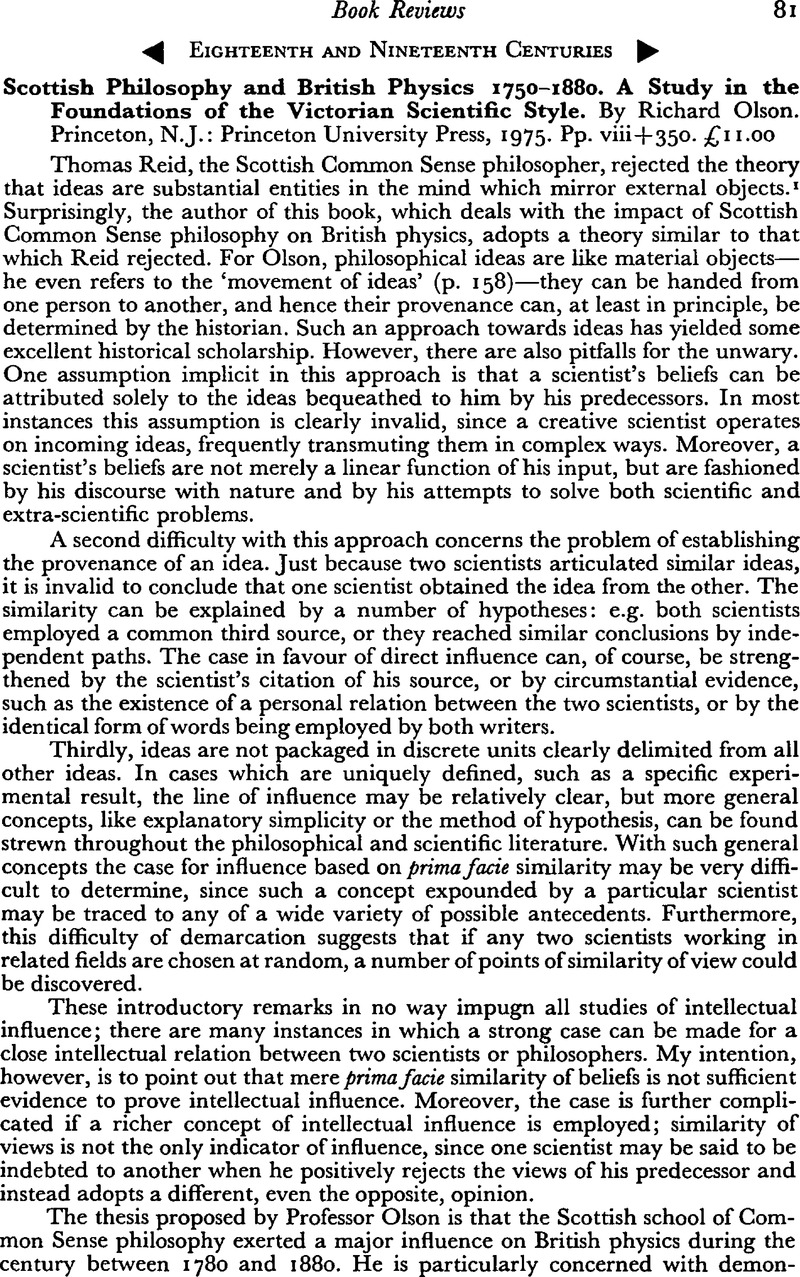No CrossRef data available.
Article contents
Eighteenth and Nineteenth Centuries - Scottish Philosophy and British Physics 1750–1880. A Study in the Foundations of the Victorian Scientific Style. By Richard Olson. Princeton, N.J.: Princeton University Press, 1975. Pp. viii + 350. £11.00
Published online by Cambridge University Press: 05 January 2009
Abstract

- Type
- Book Reviews
- Information
- Copyright
- Copyright © British Society for the History of Science 1977
References
NOTES
1 Reid, Thomas, Essays on the intellectual powers of man (Edinburgh, 1785)CrossRefGoogle Scholar, Essay II, chapter XIV.
2 In his review of Whewell, 's History and Philosophy of the inductive sciences, in Quarterly review, lxviii (1841), 205Google Scholar, Herschel cited, in complimentary fashion, Douglas, James's On the philosophy of mind (Edinburgh, 1839)Google Scholar. This book, which was published nine years after the Preliminary discourse, contains a critical discussion of the philosophy of Reid, Stewart, and Brown.
3 Herschel, ibid., pp. 177–238.
4 Compare, for example, their arguments concerning realism: Reid argued from ‘common sense’, while Herschel considered that experience teaches us that the external world really exists. See Reid, , op. cit. (1), chapter XXGoogle Scholar; Herschel, , op. cit. (2), pp. 205 and 209.Google Scholar
5 Agassi, Joseph, ‘Sir John Herschel's philosophy of success’, Historical studies in the physical sciences, i (1969), 1–36.CrossRefGoogle Scholar
6 Locke, John, An essay cancerning human understanding (1690)Google Scholar, Book III, chapters IX-XI, and Book IV, chapter XII; Hankins, T. L., Jean D'Alembert: science and the Enlightenment (Oxford, 1970), pp. 109–14Google Scholar; 'sGravesande, W. J., Mathematical elements of natural philosophy (6th edn., London, 1747), pp. i, xliii.Google Scholar
7 The only entry under ‘soluble’ in Johnson's dictionary is a quotation from Arbuthnot concerning the solubility of sugar.
8 Herschel, J. F. W., Preliminary discourse on the study of natural philosophy (London, 1830), p. 76Google Scholar; Brown, T., Lectures on the philosophy of the human mind (20th edn., London, 1860), p. 32.Google Scholar
9 Herschel, ibid., pp. 144–58; and Herschel, , op. cit. (2), p. 233.Google Scholar


